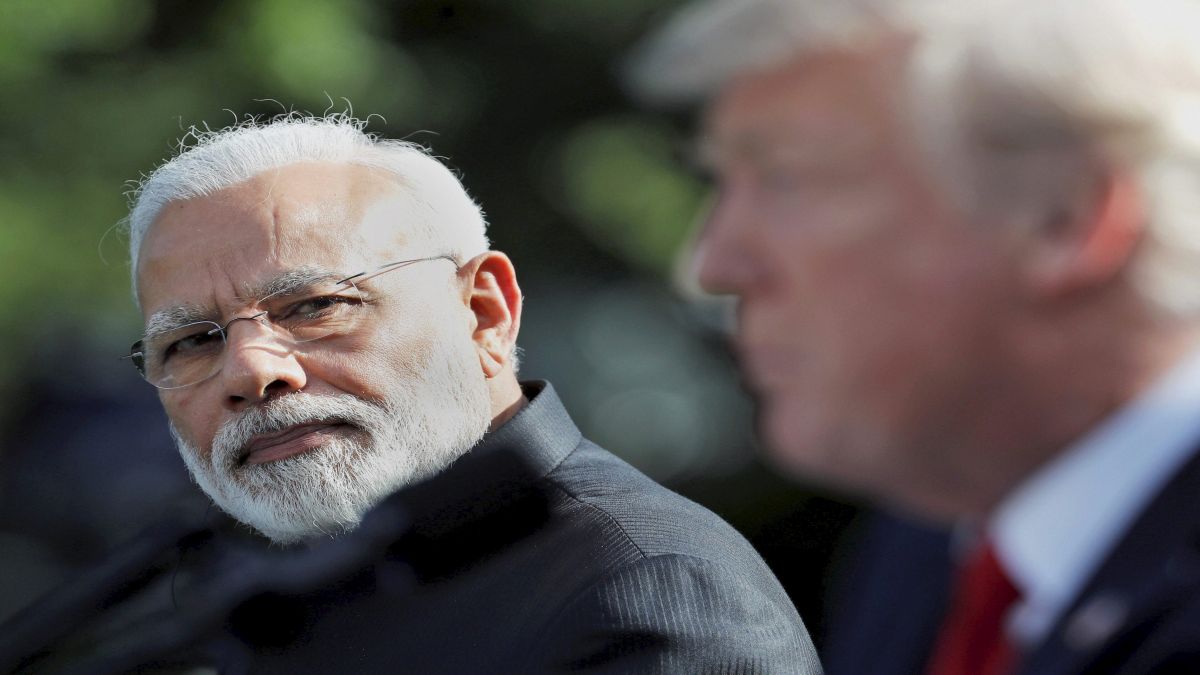Some of the easiest actions for the Indian government to undertake to outscore the Trump mischief are in the field of foreign direct investment (FDI). Investment easily runs into a sector which is consumer-facing; notice the alacrity with which money poured into multi-brand retail, which is a lesson Indian policymakers may need to internalise.
Two such sectors immediately attract interest in the current context; these are insurance and tobacco.
It was widely expected that the finance ministry would bring the Insurance Act for amendment in the just-concluded monsoon session of Parliament. The current limit for FDI for insurance underwriting is 74 per cent. The sector is highly capital intensive, and foreign insurers holding joint ventures with Indian partners have long complained that they are unable to plough additional money because of this constraint. They wish for 100 per cent holding to be able to expand their insurance business as the Indian market badly needs. India’s insurance penetration at less than 4 per cent of the GDP is not only much less than its peer group countries, but consumers in the lower income group find the companies are not willing to expand risk coverage.
Unlike many other sectors, since the limit for FDI in this sector is written into the law. So every time the limit has to be changed, parliamentary approval must be obtained. The government, despite making noises earlier about relaxing the limit, has not gone ahead.
The other sector where investment can easily come in is tobacco processing. The need is for FDI to come in not just for technology transfer, which is the policy at present, but also for plain-vanilla expansion of existing units or for greenfield ventures as 100 per cent export-oriented units.
The move will immediately raise the offtake from domestic farmers of flue-cured Virginia tobacco. In the absence of such an automatic price support, it’s no coincidence that last year when tobacco prices had crashed at the farm gate, Union Commerce and Industry Minister Piyush Goyal had to dash to Hyderabad, armed with goodies for these farmers from Andhra Pradesh.
It was also politically expedient because it was just after the general elections, and the BJP was keen to ensure that the chief minister of the state, N Chandrababu Naidu, did not have to face irate farmers. Tobacco farmers are among the TDP’s substantial agricultural support base. Naidu is therefore quite sensitive to tobacco prices at state auctions. When these prices had again plummeted in 2003, he had severely reprimanded buyers from the industry. Goyal assured the farmers that the centre was ready to waive off the penalties on production of excess tobacco and offer financial assistance, including interest subvention, as well as help them with digital registration.
Impact Shorts
More ShortsThis largesse will come to haunt the centre when a large number of sectors are now hurting from the punitive US tariffs. Each of them are clamouring for financial relief. The centre is reported to be already considering a fiscal relief of close to Rs 45,000 crore for them.
Just like insurance at one time, which faced stiff opposition to the liberalisation of foreign investment not too long ago, tobacco cultivation and FDI in the sector also seem to be a hot potato for the government. It seems to escape the policymakers’ attention that the government’s permission for FDI in new factories with new technologies like vaping will only be for exports. These could be allowed only in designated new or existing special economic zones. Since exports from here to the domestic tariff area are naturally contained by high taxes, plus physical restrictions, it is most surprising why such a long-hanging fruit is allowed to perish.
India is a signatory to the various World Health Organisation (WHO) protocols with the concomitant adherence to the domestic COTPA Act of 2003. Those lay down a large number of measures to contain the spread of tobacco farming and its processing. Those have neither curbed the spread of bidi, the most toxic form of tobacco use, nor of smuggled cigarettes. Vaping has also caught on in a big way among the affluent class, again with already smuggled units.
But while those are genuine concerns, the expansion of FDI in the sector puts none of those laudable objectives under strain domestically. Instead, India can burnish its reputation as an investment-friendly destination by pushing for FDIs in more sectors like insurance and tobacco. As the US administration, led by President Trump, goes about its merry game of putting severe economic questions on India, it is worth debating why India should run the gauntlet of multilateral restrictions on a range of sectors. India has growth imperatives, and those cannot be hostage to an international order that shows little signs of mending.
The author is Director, Centre for Regulatory Governance, OPJ University. Views expressed in the above piece are personal and solely those of the author. They do not necessarily reflect Firstpost’s views.


)

)
)
)
)
)
)
)
)



